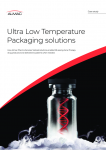EUCROF calls on EMA not to publish CRO inspection reports as part of transparency efforts

“With regards to the inspection of CROs, there is no unified European system in place to inspect all CROs fairly, equally and in regular intervals using the same methodology and standards. For reasons beyond CROs’ influence, one CRO might be inspected and findings would be publicly available, whilst a competitor may not be inspected and therefore no report would be available,” the federation claims.
The comments were made as part of the EUCROF’s 24 pages worth of comments on the EMA’s draft proposal on the specifications for the EU portal and EU database tied to the regulator’s clinical trial transparency efforts.
As far as why the inspection reports should not be published in full, the federation claims that the “publication of the inspection reports (including minor findings and recommendations) would disclose a large amount of commercially confidential information that is of no relevance to the public” and “it may be difficult for the public to put the information into context.”
Commercial Interest
For ongoing trials, the availability of inspection findings to the public might lead to trial participants leaving trials prematurely and the “detailed inspection reports will be of high commercial interest to CROs’ and early phase clinical research units’ competitors.”
Instead, the EUCROF proposes that national inspection schemes (both voluntary and mandatory) “should not be reported via the EU portal” while for inspections within the EU framework, the fact that an inspection took place should be made public and “only findings that are of relevance to the public (e.g. established critical safety findings) should be published via the EU portal.”
And unlike in the US, where the FDA often posts warning letters and 483s before they’ve been closed out, the EUCROF says that findings “should never be published before an inspection has been fully closed out and all findings, responses and outcomes have been agreed.”
And since CROs are highly competitive, sponsors will use the information in their selection process even though a CRO “for which nothing is published - because it was not inspected - might have an unfair commercial advantage or disadvantage (depending on the circumstances) in attracting business over one which was inspected,” the group claims.
Under the current system, publication of inspection reports “will inevitably lead to unfair commercial advantages afforded to individual CROs and unintended commercial damages to others. This could have legal implications,” the federation says.
“Until a standardised and harmonised inspection system and process is available in the EU which includes all CROs, the approach of publishing inspection reports for CROs is considered unfair by EUCROF,” the group says in conclusion.
And as far as inspections of early phase clinical research units, the EUCROF says the same standards should apply.
The comments on publishing inspection reports come as the EUCROF says that overall, it supports the EMA and Member States’ efforts to balance transparency and availability of information on clinical trials. More specifically it supports the EMA’s “acknowledgement of the particular commercial sensitivities of Phase I trials. Furthermore we support the EMA’s proposal that information on clinical trials should be made available in stages.”

















